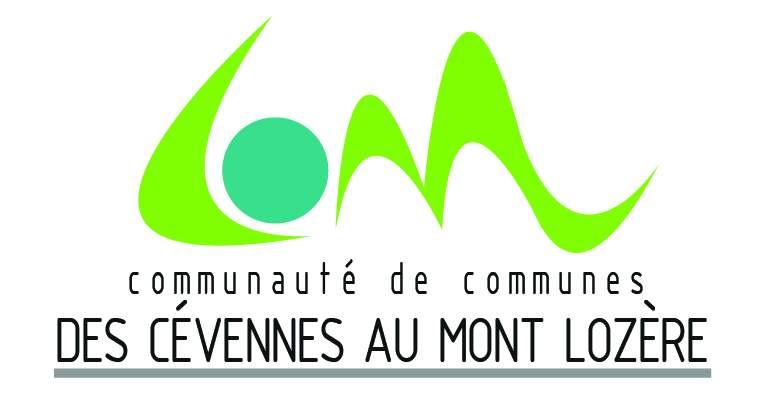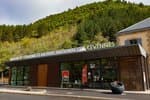
Serre de Banette – trail #27
Explore the Cévennes with their steep valleys and typical hamlets.
5 points of interest

Stagiaire en exercice - ABPS  Architecture
ArchitectureA technique for the future
Today, dry-stoning is in the spotlight again due to its qualities of suppleness and drainage and its role in preventing soil erosion and floods. Dry-stoning is a technique that respects the environment, is energy-efficient and based on the valuable heritage bequeathed by our ancestors. It is destined for a bright future.
© A.Waterschoot AgricultureSome reference points
The path is at an altitude of about 900m, which, locally, is the maximum altitude for chestnut trees. Chestnuts are one of the few possibilities for producing food on the otherwise uncultivated slopes where the trees grow. It is estimated that, every year, chestnuts are harvested on 1,500 hectares of orchards in the Cévennes, which is 4% of the total surface area.
Le Viala - nathalie.thomas  Architecture
ArchitectureLe Viala
This ensemble of farmhouses (mas) with their characteristic Cevenol architecture and layout has been remarkably well renovated. It is part of Saint-Frézal-de-Ventalon. Two handsome properties set slightly apart precede the hamlet. The first mas has an imposing façade. The studded chestnut door overlooks a beautiful, rounded staircase made from schist flagstones. The houses are partly built onto the bedrock, which is the only way of compensating for the lack of foundations. It also preserved as much fertile soil as possible to be used for irrigated meadows, or terraced gardens equipped with reservoirs that are productive thanks to their good exposure. The roofs are made from tilestones of differing sizes that overlap like shiny scales.
Bancels sous les Faysses - nathalie.thomas AgricultureThe chestnut orchard
The Destourbe orchard, at over 800 m in altitude, is an orchard of traditional chestnut varieties, most of which are dried in a purpose-built building, a clède. A herd of goats keeps down the undergrowth. Chestnut trees grew naturally in the Cévennes. Then, from the 12th century onwards, Benedictine monks planted, grafted and selected varieties to create chestnut orchards. The chestnut thus became the so-called “bread tree” of the Cevenol people. The most common variety is the Figarette, which is very small, crops early and is excellent clède-dried. The Pélégrine, which is quite big and delicious, is the best variety since it is not internally divided and is easy to peel. Research over the past 30 years has made it possible to rehabilitate chestnut orchards. Treatments for endothia (a fungus that propagates on the bark and ravages chestnut orchards), grafting and pruning as well as technical means to facilitate harvesting (nets, machines for crushing and peeling) now exist. The chestnut has been made more attractive by processing into puree, flour, jam, etc. To promote the Cevenol chestnut orchards, the association “Chemin de la Châtaigne” brings together farmers, artisans, guides and innkeepers.
Inscription des prisonnières huguenotes (Tour de Constance)  History
HistoryIn the days of the Camisards
The cemetery contains the graves of Protestants, whose religion was banned by the Revocation of the Edict of Nantes until the French Revolution and who therefore had to bury their dead on private land. The hamlet of L’Espinas is among the places of remembrance of the Camisard War (1702-1704): the revolt by the Protestants of the Cévennes against Royal Catholic rule.
Description
Follow waymarks for trail #27.
Signposts will guide you all along this route. In the description below, the signposted place names and/or directions are given in bold italics between quotation marks:
Starting from “Relais de l’Espinas” go to “Lézinier” via :
- “Le Cros”,
- “Le Viala” and
- “Loubreyrou”.
- From “Lézinier” return to “Relais de l’Espinas” via :
- “Clerguemort”,
- “Col de Banette” and
- “Draille de l’Espinas”.
This trail is taken from the guidebook Mont Lozère – Pays des sources, Sommet des Cévennes, published by the Pôle de pleine nature du mont Lozère.
- Departure : Relais de L’Espinas
- Arrival : Relais de L’Espinas
- Towns crossed : Ventalon en Cévennes and Vialas
Forecast
Altimetric profile
Recommandations
Before committing yourself to a circuit, ensure that it is suitable for your activity level and ability. Remember that the weather changes quickly in the mountains. Please close all gates and barriers behind you. Stay on the marked path.
Information desks
Tourism'house and national Parc at Florac
Place de l'ancienne gare, N106, 48400 Florac-trois-rivières
This office is part of the National Park's associated tourist-information network, whose mission is to provide information on, and raise awareness of, the sites and events as well as the rules that must be observed in the National Park's central zone.
On site: exhibitions, video projections, events and shop Open year-round
Office de tourisme Des Cévennes au mont Lozère
le Quai, 48220 Le Pont de Montvert sud mont-Lozère
Access and parking
From Pont-de-Montvert-Sud-Mont-Lozère or from Vialas, to La Croix de Berthel on the D 998, then to Relais de L’Espinas on the D 35 (the “Route des Crêtes” or ridge road).
Parking :
Calculateur d'itinéraire Lio
Utilisez le calculateur liO pour organiser votre trajet en région Occitanie.
Autres régions
Calculez votre itinéraire en Auvergne Rhône Alpes sur Oùra
Biodiversité autour de l'itinéraire
Source


Report a problem or an error
If you have found an error on this page or if you have noticed any problems during your hike, please report them to us here:



